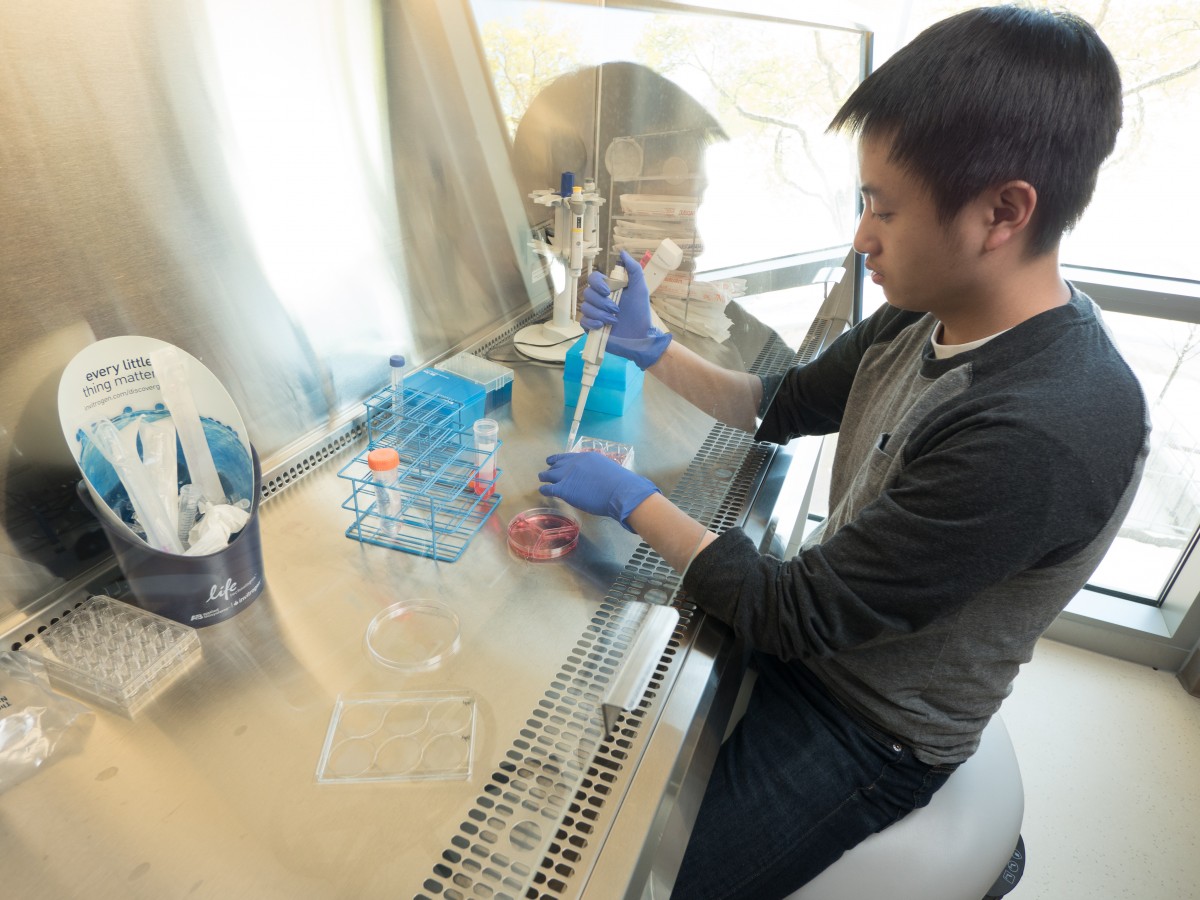“Education is the largest and most important investment Utah makes.” – Governor Gary Herbert
Founded in 1888, the College of Agriculture and Applied Science (CAAS) at Utah State University is a font of diverse education, set amongst the idyllic mountains and valleys of Northern Utah.
At the CAAS, prospective students find themselves engulfed in the culture and spirit of the university. Those who graduate from CAAS leave with bounds of knowledge and hands-on experiences, harnessing this to help them reach the frontline when seeking employment in their respective fields.
“We have something for everyone,” writes College Dean, Ken White, on the college website. And with a plethora of programs for prospective students to choose from, paired with a dedicated and approachable faculty, those who study at CAAS truly aspire to reach their dream roles, whether that be a doctor, aviator, farmer, designer, economist, and the list goes on.
“Faculty pride themselves on understanding your personal and scholarly ambitions and then helping you reach those goals. From research opportunities to one-on-one mentorship, your professors work to help you succeed,” adds White.

The institution’s history of success has enabled it to offer a diverse range of courses for prospective students to pursue. The BS Nutrition, Dietetics, and Food Sciences program focuses on the scientific, economic and social aspects of food production and consumption. Students can find careers easily with a high-demand for professionals in the field, so graduates can jump straight into meaningful work within the food industry with companies like Nestle, and often with government agencies like the USDA and FDA.
The BS Climate Science (CSD) program combines basic and applied principles of meteorology, climatology and environmental physics, which are concerned with how natural laws determine changes within the climate.
“The purpose of CSD is to train the next generation of global leaders in climate and climate change science,” the course description explains.
The top job prospects for a climate science major is projected to be one that will increasingly tackle how climate change impacts the world. The job demand has been steadily on the up for the coastal regions due to hurricanes and sea level rise, as well as the Great Plains in a space now dubbed Tornado Alley, and also western states due to drought and wildfires.
In the BS Plant Science curriculum, students find their focus on the research, production, and management of economically important plants. Students benefit from direct access to faculty members and the opportunity to receive hands-on experience working alongside research scientists in laboratories, greenhouses, and fields.

A highly-customizable course, plant science majors home in on a variety of areas, including biotechnology, fertilization, weed control, the specific production of fruits, vegetables, turn, ornamentals, agronomic crops, and more.
BS Animal, Dairy, and Veterinary Sciences at Utah State includes all aspects of animal science. Students on the course benefit from a wealth of opportunities for hands-on experiences in feeding, breeding, handling, managing, and grooming animals by working with beef and dairy cattle, horses, sheep, and swine.
The department also has access to quality lab facilities and equipment, allowing for research in all of these topics as well as in animal reproduction, nutrition, and disease. “Its Center for Integrated Biosystems has been recognized for its cloning expertise twice by Popular Science magazine,” the website states.
Depending on the emphasis the student takes on the course, of which there are four, graduates can pursue careers in such fields such as livestock production, corporate agribusiness, equine training and management or in such roles as animal caretakers, research scientists and more.

The BS Environmental and Natural Resource Economics (ENRE) program is aimed at those seeking an undergraduate degree focused on the efficient allocation of natural resources and amenities. With competition rising for the limited land, water and other natural resources throughout the world, as well as growing concern about environmental degradation, there is a constant growing need for individuals who can assist in the process of balancing economic and environmental trade-offs.
“ENRE graduates will be well-prepared to contribute to the goals of organizations and agencies in both the private and public sectors,” the website explains.
With such a variety of programs to choose from, plus friendly and academically-renowned staff, and a campus equipped with state-of-the art facilities like the Stan L. Albrecht Agricultural Sciences Building and the Equine Education Center, students are sure to receive an education that paves the way to a career in agriculture and applied science.
But it’s not just the programs, staff, facilities and beautiful location that makes the CAAS so special, it’s also the culture found amongst students throughout campus. The college attracts ambitious applicants from all over the world, and as a result, a diverse range of languages are spoken across the site. A merger of global culture flourishes at Utah State, taking shape in a range of extra-curricular societies and events. CAAS students particularly benefit from subject-specific organizations, including Animal Science Club, Rodeo Club, and Student Organic Farm.

Students are encouraged to pursue research opportunities, become CAAS Ambassadors and actively commit to on-campus events, creating a warm and inviting sense of friendship and community.
High-quality education and experiences often come with a high cost, but this college offers affordable prices and fantastic scholarship schemes, awarding more than 200 scholarships a year that amount to more than $500,000.
Prospective agriculture and science students find an elite culture of study here, at Utah State. Upon admission to the world-standard CAAS, students gain a valuable hands-on experience for the duration of their studies, building the first meaningful blocks in their most desired careers.
Follow USU College of Agriculture and Applied Sciences on Facebook, Twitter, YouTube and Instagram
Liked this? Then you’ll love these…
Cultivating Futures: Global Leaders in Agriculture & Forestry
5 US leaders of agriculture, environment, and sustainability education











